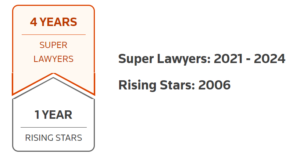DIVORCE IN MASSACHUSETTS F.A.Q.
The below information does not constitute legal advice but is offered for informational purposes only. If you want to receive legal advice you should retain a lawyer.
You may file for a divorce in Massachusetts if you lived with your spouse in the Commonwealth. When the cause of the divorce did not arise in Massachusetts, and/or if you have never lived with your spouse in Massachusetts, you may file for a divorce in Massachusetts if you have resided here for at least one year prior to the filing of divorce.
After a Complaint for Divorce is filed, it must be served upon the other party. The other party, known as the defendant, who may be you if you are served with a complaint for divorce, has to file an Answer to the complaint. An answer is a pleading that must be drafted so as to respond separately to each allegation in the complaint. The answer must be filed with the Court, with a copy served to counsel for the plaintiff, or to the plaintiff directly if the plaintiff is representing himself or herself. The defendant should also file a counterclaim with the answer, if the defendant so chooses, as well as any affirmative defenses. You must be very careful in answering a complaint for a divorce if you contest jurisdiction as a defendant, because you may inadvertently confer jurisdiction to the Court if you answer incorrectly. The best thing to do is to consult an attorney.
It depends on the type of divorce that is pursued. A completely uncontested divorce followed by a joint petition may be completed very quickly. A contested custody case, for example, may not be complete for more than a year. Also, depending upon the type of divorce filed, there may be a six-month waiting period before a “dispositive hearing,” such as a pretrial conference, may be scheduled.
Yes. When a plaintiff files a divorce, the plaintiff is subject to an automatic restraining order on assets. That same automatic restraining order on assets takes effect on the defendant when that party is served with the Complaint for Divorce. The automatic restraining order prohibits parties from transferring, selling, liquidating or otherwise disposing of assets other than in the ordinary course of business, or to pay reasonable attorney’s fees in connection with the divorce. If this restraining order is violated, the Court may impose sanctions against the offending party.
In deciding, the Court is guided by “in the best interests of the child.” The Court will look at all relevant circumstances (a discretionary standard) including, among other things, age of the children, day-to-day routine, and which parent has been primarily responsible for the daily care, and will enter a provision for care, custody, and financial support of the child(ren) in the Judgment of Divorce, Judgment of Paternity, or Judgment of Custody.
When custody is disputed, the Court may appoint a Guardian Ad Litem (“GAL”). The Court generally directs a GAL to investigate facts and allegations surrounding custody and will file his or her report with the Court, which will often contain custodial recommendations. The Court will consider the GAL’s findings in arriving at a decision as to custody.
Child-related matters are always subject to modification and a different standard applies when a parent seeks to remove a child permanently from the Commonwealth over the objection of the other parent. In such circumstances the Court will apply the “significant advantage test.”
Child support is the amount of money a so-called “non-custodial parent” pays to the “custodial parent.” In most cases, child support will be determined by formula according to the Massachusetts Child Support Guidelines. The guidelines will take the gross income (before taxes) amount of each party, up to certain income levels, as well as the number of children, their age, the cost of child care, and the cost of health insurance into consideration. Child support is non-taxable to the recipient spouse and is not tax deductible for the payor spouse. Child support is modifiable based upon a material change in circumstances.
Alimony is not awarded in every case. Alimony is the amount of money one spouse pays to another spouse. There is no static formula for awarding alimony. Alimony is based both on the need (which in some circumstances may translate into the standard of living the parties have become accustomed to) and the ability to pay alimony.
The Court must consider the following factors in determining alimony, pursuant to Mass. Gen. Laws. C. 208, § 34:
- Length of marriage;
- Conduct of parties;
- Age;
- Health;
- Station;
- Occupation;
- Amount and sources of income;
- Vocational skills;
- Employability;
- Estate;
- Liabilities;
- Needs;
- Opportunity for future acquisition of capital assets and income; and,
- Present and future needs of dependent children (if any).
Alimony is taxable to the recipient spouse and is tax deductible for the payor spouse.
The division of marital assets is a complex matter. In most cases, the parties reach a negotiated agreement on the division of assets after there has been full and complete financial disclosure. The Court must consider all of the following factors in reaching its determination, pursuant to Mass. Gen. Laws. C. 208, § 34:
- Length of marriage;
- Conduct of parties;
- Age;
- Health;
- Station;
- Occupation;
- Amount and sources of income;
- Vocational skills;
- Employability;
- Estate;
- Liabilities;
- Needs;
- Opportunity for future acquisition of capital assets and income; and,
- Present and future needs of dependent children (if any).
In addition, in determining the equitable division of the assets, the Court may also consider: (1) the contribution of each party to the acquisition, preservation and appreciation of the marital estate and (2) the contribution of each as a homemaker to the family unit.
When considering an equitable division of property, the Court is authorized to consider all property, whenever, wherever or however acquired. Thus, the fact that real estate and/or personal property was acquired by one party prior to marriage (or that title to the property is held individually) does not insulate that property from the Court’s consideration in arriving at an equitable division of property.
SAFETY FIRST. If you are being physically abused, call local and/or state police as soon as possible. If you have been abused in the recent past, or have been threatened with physical abuse, you may apply for an Order for Protection from Abuse pursuant to G.L.c. 209A—The Protection from Abuse Statute.
Normally, each party is responsible for paying his or her own legal fees and expenses. If your financial circumstances are such that your spouse has sole control of the finances, and you have no access to funds with which you can pay legal fees, you have a right to petition the Court to order your spouse to release to you a portion of the funds with which you can pay your legal fees.

DIPIANO FAMILY LAW GROUP P.C. IN MASSACHUSETTS
At DiPiano Family Law Group P.C., clients can be confident that their family law matters will be handled with the utmost professionalism and in confidence.
DiPiano Family Law Group P.C. is the go-to law firm in Greater Boston, the North Shore and throughout Massachusetts for divorce litigation and mediation, asset division and family law. We provide the skilled legal counsel and representation of a traditional Boston legal practice without the extra expense and time-consuming commute. Our Salem office is especially convenient for residents of neighboring towns like Beverly, Marblehead, Swampscott, Danvers, Lynnfield and Peabody. Consistently delivering favorable outcomes for our clients has helped extend our reputation to communities spanning the edges of Essex County like Ipswich, Andover and North Andover as well.







